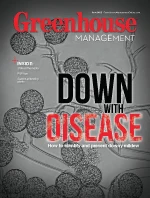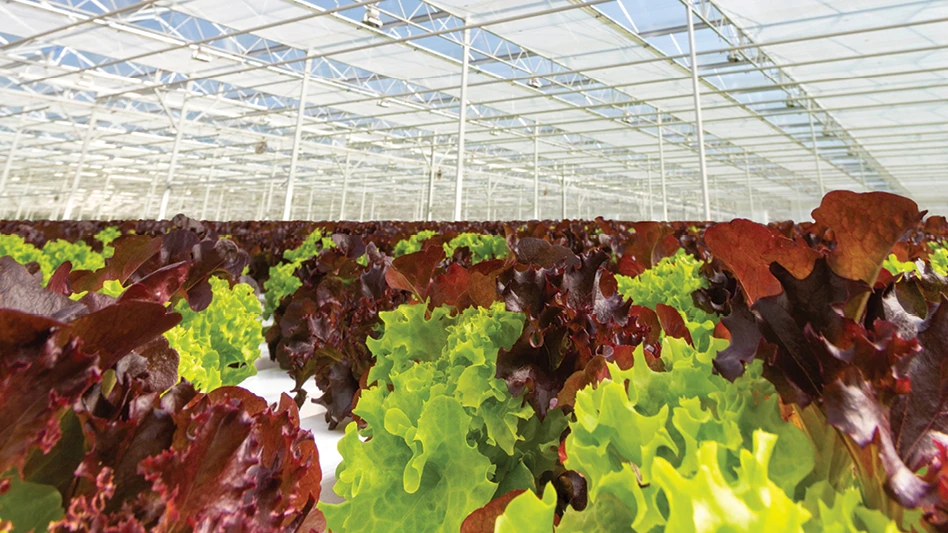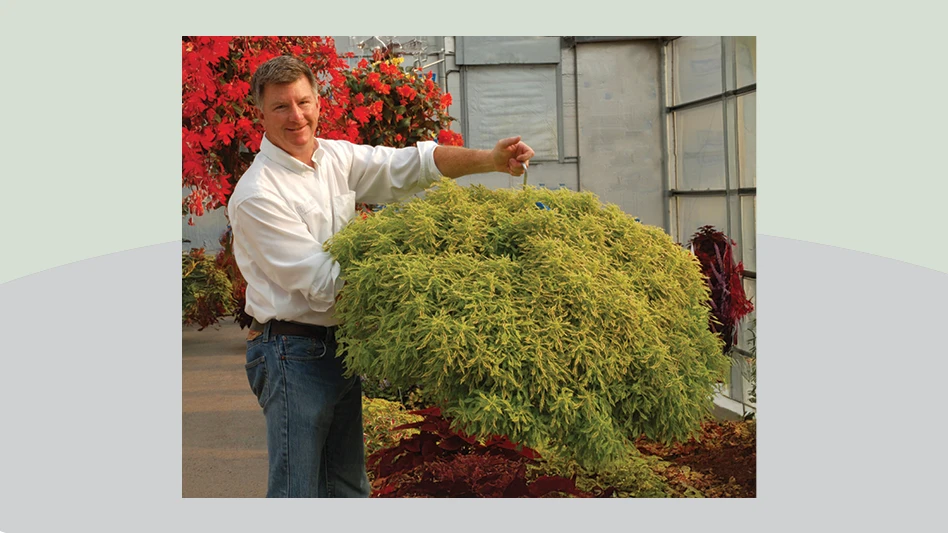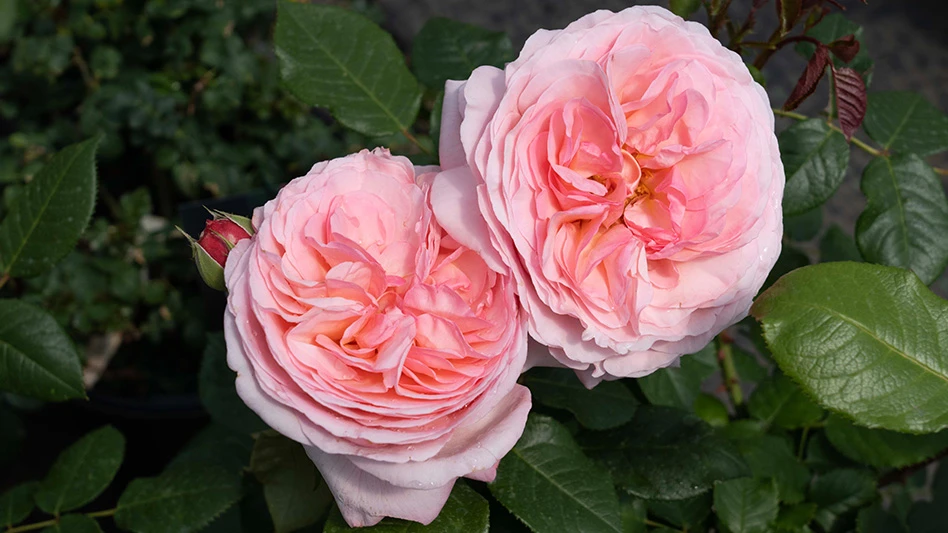 All-America Selections celebrates its 80th anniversary this year, and as part of the celebration, Greenhouse Management will interview a different AAS judge each month to talk about how he or she runs his or her business and what AAS means to them. This is the second installment of the 12-part series.
All-America Selections celebrates its 80th anniversary this year, and as part of the celebration, Greenhouse Management will interview a different AAS judge each month to talk about how he or she runs his or her business and what AAS means to them. This is the second installment of the 12-part series.
 Melissa Shepherd was weeding at Epcot when a call came in she wasn’t expecting. Apparently there was a delivery for her, which she also wasn’t expecting, and she wasn’t even sure it was hers.
Melissa Shepherd was weeding at Epcot when a call came in she wasn’t expecting. Apparently there was a delivery for her, which she also wasn’t expecting, and she wasn’t even sure it was hers.
She headed back to the nursery, and when she got there, she discovered the shipment was, in fact, hers.
“Instead of pulling weeds like I needed to go do maintenance in the garden today, that drops off to tomorrow’s list, and today I had to unload the delivery of plants that came and find a home for them and get them on the bench and get them watered in and get them set to hang there until I can get back to them,” says Shepherd, Walt Disney World nursery production specialist and Walt Disney World bedding plant trials coordinator. “It’s just a matter of prioritizing and putting out the fires as they come up.”
Shepherd says that having enough time to get everything done is her biggest challenge on a daily basis.
“There’s just so many aspects to the job that I do with Disney’s trial garden and then trialing we do for AAS, and then I also have other responsibilities … ,” she says. “There’s just a lot of aspects to balance to find a happy medium where everything’s getting done as good as it can.”
One of the keys that helps her stay on top of everything is tackling each day with a plan of action for the top five or six things she wants to get done that day.
 “Out of the six things, I may get three done because five more come into the queue, and then I have to reshuffle,” Shepherd says.
“Out of the six things, I may get three done because five more come into the queue, and then I have to reshuffle,” Shepherd says.
She also tries to break things down by task. For example, she may do all potting for two days to get all of the potting done at once instead of doing potting and planting in the same day. Then she’ll do all planting.
“I try to organize my work and streamline things as much as I can,” she says.
She said organizing data on the computer helps keep things organized as well. Before 2004, everything was done by hand, but now it’s all entered electronically so she can easily find data that will help her make decisions quickly and easily. She says being a diligent record keeper can help anyone save time.
“As long as I’m diligent about inputting our data, it’s easier to go back and check on something when it was planted and having it electronically at my fingertips,” she says. “We trialed zinnias, and two years ago when we trialed zinnias, we planted on this date, and it didn’t work, so maybe this year, I’ll try it on this date. It’s a good point of reference.”
For more: The Walt Disney Co., www.disney.com
|
Disney and AAS When Melissa Shepherd was a young girl, she used to help her mother in the garden with pulling up weeds and planting. “I’m a true plants person,” she says. “There’s nothing else in this world I’ve ever wanted to do since growing up.” Now she works for The Walt Disney Co. and became a judge for AAS in 2007. “AAS is just a great opportunity to share my love of plants and encourage other people to try new things as far as plants are concerned,” she says. In addition, she’s seen her involvement with AAS really help Disney. “It’s a huge help to us to be able to forecast what’s coming up in the future in the plant world,” she says. Think about all the flowers across all the Disney parks and realize just how many plants she’s working with for the organization. “We have a trialing area here where we trial plant materials before we even ever consider putting it in the parks,” she says. “With AAS, that just helps to reinforce the choices we’re making and the directions we’re going into.” For example, the park has had problems with vincas in the past, but when vincas started showing up in the AAS winners, Shepherd knew it was safe for them to go back to using them. “The disease problems that vincas were common with here in Florida had been solved through the breeding program,” Shepherd says. “It gives us a window into what’s coming up.” For more: AAS, www.all-americaselections.org |

Explore the June 2012 Issue
Check out more from this issue and find your next story to read.
Latest from Greenhouse Management
- North Carolina Nursery & Landscape Association announces new executive vice president
- Plant Development Services, Inc. unveils plant varieties debuting in 2025
- Promo kit available to celebrate first National Wave Day on May 3
- Applications now open for American Floral Endowment graduate scholarships
- Endless Summer Hydrangeas celebrates 20 years with community plantings
- Invest in silver
- Garden Center magazine announces dates for 2025 Garden Center Conference & Expo
- USDA launches $2 billion in aid for floriculture growers





